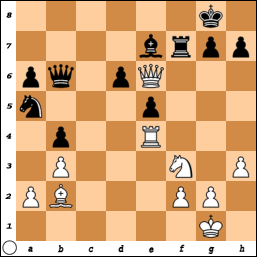“The last enemy that shall be destroyed is death”
(1 Cor. 15:26; Deathly Hallows, Ch. 16)
Warning: Contains spoilers regarding the Harry Potter series.
There’s a pause in the battle of Hogwarts while Voldemort waits in the Forbidden Forest and the survivors of the siege gather together. The reality of a broken world has never been more obvious, characters we have grown to love are dead, and it’s against this backdrop that Harry Potter begins a walk. Invisible under the cloak his father left him, he exits out the shattered front doors and across the grounds, passing through a scene of death and dying. Harry moves inexorably toward Voldemort, accompanied by the ghostly images of those who had gone before—his mother, his father, his godfather, and his teacher. He walks toward death, knowing that the only way to be finally victorious is give up his life. As Dumbledore will soon tell him in the surreal scene at King’s Cross, Harry is the “true master of death, because the true master does not seek to run away from Death. He accepts that he must die, and understands that there are far, far worse things in the living world than dying.”
I never would have thought when first opening Harry Potter and the Sorcerer’s Stone that what would follow seven books later was a profound meditation on death. Against all odds, J.K. Rowling hits at the heart of our mortality without appealing to vague, de-theologized accounts of the afterlife that so pervade popular fiction. She does not diminish death by suggesting it’s all going to be right in the end but instead places it in the context of an ultimate victory. Death is not avoided; it is defeated. This is a story that sets out to show the difference between the one who runs from death—Voldemort (“flees from death” in French)—and Harry, who walks toward death in the knowledge that love wins. He realizes that this world is a broken one in which all manner of tragedy may befall those he loves. Ultimate victory is achieved not in holding on to life but in the death of death.
When we reach the end of the story what should have been evident all along smacks us in the face: the whole Harry Potter adventure has been a theological reflection on death and loss. Never does a character pray, never do we hear about the cross, never does Rowling say the words ‘justification,’ ‘righteousness’ or ‘salvation’ and yet it is all there, wrapped up in the sacrifice Lily Potter made for her son to set the whole journey in motion. On the Potters’ gravestone is that at once melancholy and wonderful phrase from 1 Corinthians: “The last enemy that shall be destroyed is death.” When Harry falls he finds the reality that matters most is not death but resurrection. And lest you think this is not a Christian resurrection consider what it is that saves Harry. His goodness? His worthiness? His knowledge of magic? None of these. It was the sacrifice of those who had gone before, especially his mother’s death for him. Death died with Lily Potter just as death died on the cross.
While Rowling’s story may defy easy allegorization the overtones of the crucifixion are ever-present. Death died in Godric’s Hollow just as in Golgotha, and only because of that can Harry walk toward Voldemort with his head held high, knowing that he faces not an end but just what Dumbledore told him six years earlier—“To the well-organized mind, death is but the next great adventure.”
The first installment of Harry Potter and the Deathly Hallows opens in theaters nationwide on November 19.


































